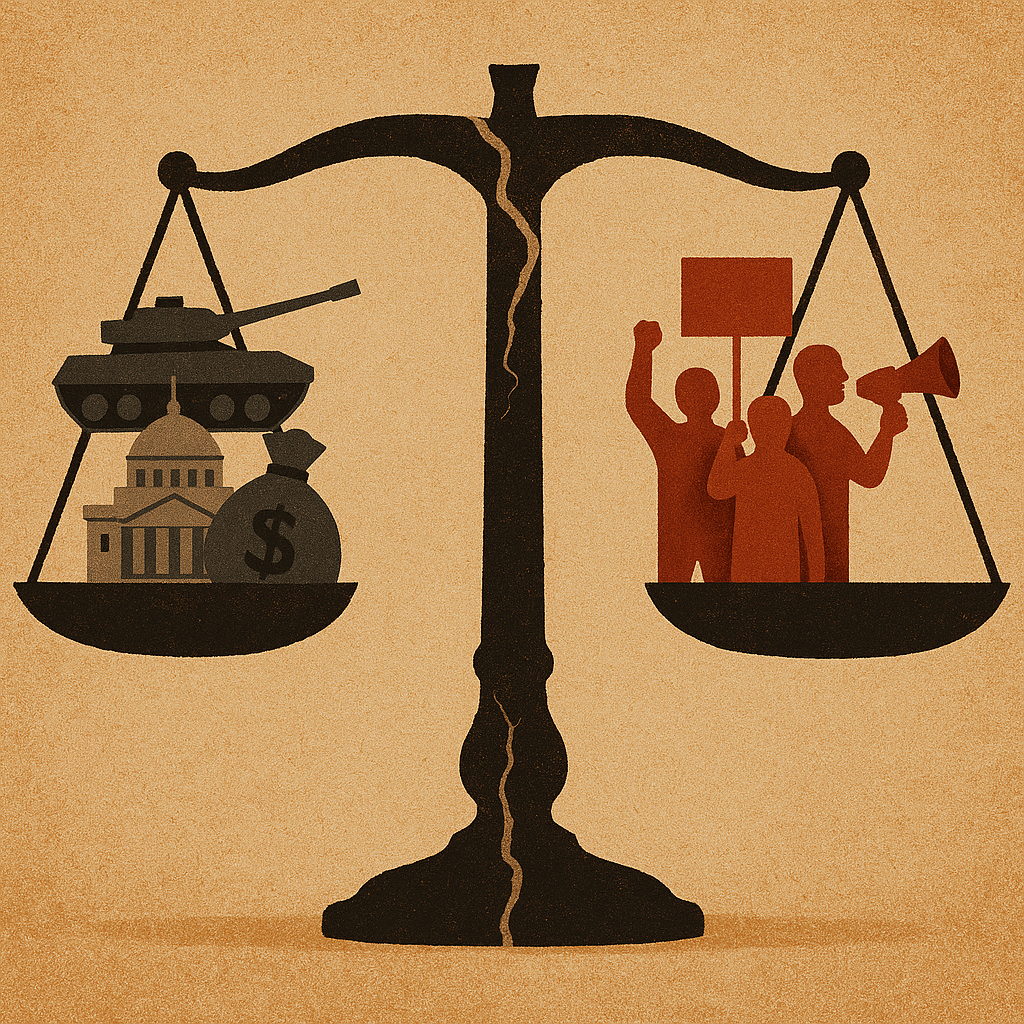Depolarisation is a hot topic right now. From policymakers to practitioners, academics to civil society actors, there seems to be a growing consensus that societal and political polarisation poses a growing threat to social cohesion, free debate and, indeed, our liberal democracy itself. In the face of this, we’ve seen a numerous panels, thinkpieces and policy interventions that signal an urgent need for depolarisation. The alternative? An increasingly divided society characterised by radicalisation, extremism and the death of democratic deliberation.
I’ve had an uneasy feeling about this discourse for a while now, but haven’t been able to put my finger on why. After giving it some more thought, I’ve come up with three major qualms I have about depolarisation discourse.
- It flattens power imbalances.
This week, on a panel on depolarisation I was attending, one of the speakers brought up Israel and Palestine. He lamented the polarisation surrounding this topic; especially the ways in which we have two strongly opposing camps and ‘those in the middle just speaking facts are seen as the bad guys’. Putting aside the frankly insulting implication that those of us campaigning for Palestinian liberation are somehow driven by irrational ideology rather than facts, his intervention highlighted an important issue. The idea that Israel/Palestine is a ‘polarised’ topic completely flattens the stark power imbalances that characterise it. These are so obvious as to not require much elaboration but, in short, we have a nation-state with one of the most powerful militaries in the world, funded to the tune of billions by the USA and Germany up against a people enduring occupation, apartheid and a plausible genocide. To paint this as a ‘polarised’ issue makes invisible this power imbalance. It also allows those in the middle ‘speaking facts’ to occupy an undeserved moral highground.
2. It creates false equivalences.
Back when climate change was making its way into the newsroom at snailspace, the BBC used to like pitting environmental activists against climate change deniers on panel debates. This was all done in the name of the Beeb’s famous impartiality policy. The result? We were all lumped watching fringe nutjobs long after the scientific consensus was that, yes, climate change is happening and, yes, it is happening very quickly. Depolarisation discourse, in its admittedly well-intentioned normative commitment to hearing all sides, often creates equivalences where there aren’t any. Not every issue has two sides, or rather, not every issue has two sides worth telling. The result of this is that, often, public discourse remains mired in debating the basic terms of the issue: Is climate change real? Does racism exist? And we don’t get even close to coming up with solutions.
3. It entrenches the status quo.
Depolarisation is the ultimate centrist Dad. Again, he’s well-intentioned but in practice the ideas he finds polarising are the radical ones – the ones that seek to shake things up. Don’t get me wrong, a significant proportion of the radical ideas in our society are terrible ones – I do research white supremacism afterall. But the logical endpoint of depolarisation efforts is to pull all those at the extremes of political thought into the centre and build consensus around a broken status quo. Radical ideas are divisive because they call into question a state of affairs that suits a lot of powerful people. To cite some oft-mentioned examples, the suffragettes were polarising and the civil rights movement was polarising. Many of the rights and protections we take for granted today were won by polarising figures.
So it’s time we moved beyond depolarisation. We have better vocabularies and tools that more accurately diagnose and respond to the problems of contemporary societies: emancipation, justice, resistance, liberation. Social change requires struggle against, not compromise with, those that seek to erase us.


